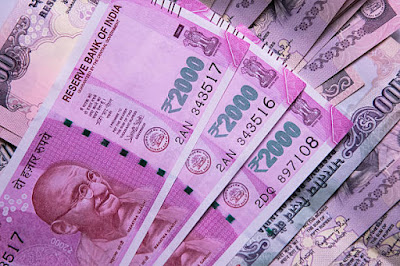First and foremost, I commend the efforts of Narendra Modi Sir in combating black money and taking various measures to curb its circulation.First demonetisation in 2016 and now Phasing out of 2000 re note. The intent is excellent but results may not be as desired
As in 2016 many got away by exchanges notes from banks, buying gold and Hawala transactions. That time I had requested government with my blog , that introduce zero percent coupon bonds for five years and let the money come into system. My gratitude the government introduced them, but it was too late and by that time, all old notes were taken care of. This is link to my blog in 2016
https://renukajain.blogspot.com/2016/11/cash-may-no-longer-be-king-in-india-in.html
The same is happening post RBI announcement of phasing out of 2000 Re note. However the history is repeating. Money going into gold, dollars and exchanges happening.
However, I would like to propose a new approach that can potentially lead to a significant reduction in the amount of undisclosed income in our economy. I request the government to consider allowing individuals to voluntarily disclose their 2000 notes while imposing a higher tax rate on such disclosed funds, if there is no income source to justify on high value disclosure like above 5 lacs
Similarly zero coupon bonds for five years is also a great option.
The rationale behind this proposal is to provide an opportunity for those with undisclosed income to come forward and contribute to the nation's development, while simultaneously discouraging the hoarding of black money. By offering a higher tax rate on the disclosed amount, individuals would be motivated to reveal their hidden assets, knowing that it would be more beneficial for them to do so rather than continuing to conceal their wealth.
Moreover, the additional revenue generated from this higher tax rate on disclosed black money can be utilized for various developmental projects, infrastructure improvements, social welfare programs, and initiatives aimed at reducing economic disparities. This would contribute to the overall growth and progress of our nation.
To implement this proposal effectively, I suggest the following measures:
Creation of a time-limited disclosure window: Introduce a specific duration during which individuals can voluntarily disclose their black money with the assurance of confidentiality and protection from legal consequences.
Higher tax rate on disclosed funds: Set a significantly higher tax rate on the disclosed amount compared to the regular tax rates. This would serve as a deterrent to those who continue to hold black money.
Stringent penalties for non-compliance: Establish strict penalties for individuals who fail to disclose their black money within the specified window or provide false information during the disclosure process. This would ensure that the program is not misused.
Robust monitoring and evaluation: Strengthen the existing monitoring systems to track the source of disclosed funds and ensure their legitimacy. This would help in preventing the laundering of illicit money under the guise of voluntary disclosure.
By implementing these measures, the government can encourage individuals to come forward and contribute to the formal economy, leading to increased tax revenues and a more transparent financial system. Furthermore, it would send a strong message that the government is committed to addressing the issue of black money effectively.
I kindly request you to consider this proposal seriously and initiate a thorough examination of its feasibility. I believe that implementing such a program can have a transformative impact on our economy, promoting a culture of honesty, transparency, and tax compliance among our citizens.

Comments
Post a Comment